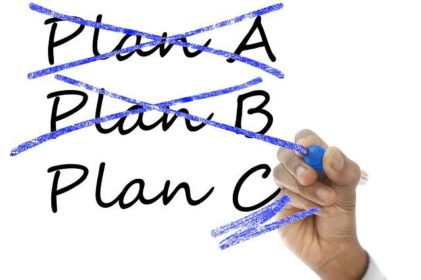Last Updated on October 12, 2025 by Michelle Ball
WHY do some school districts punish students less, and some punish students so much more? There are many reasons, such as lack of school supervision, ignoring the law, or the almighty power to choose, aka “discretion.”
Punishment Is Different Depending on the Gatekeepers

Staff matter at schools. The discipline gatekeepers are extremely important.
Whether a Vice Principal (VP) pursues an allegation against a student may depend on his or her personal viewpoint. Was a student taking a french fry from a friend really a theft? Or not?
Most of us would probably say not, but the gatekeeper determines this. If the VP says “This is not a big deal Student X, go back to class, and don’t take other students food again please,” the matter is over. Student X goes back to class and the student’s parents may never know the student was called into the school office.
But, if the school administrator believes all students are offenders and must be punished(!), the french fry snatching may end in a theft suspension and a permanent mark in the student’s records, all for taking a friend’s food and laughing about it. Ugh.
[By the way, if you think this is exaggerating real life- it’s not. I saw a student suspended for taking a couple french fries before from another student! Isn’t there a better way of dealing with that?]
More School Gatekeepers
Gatekeepers above the VP also matter. Will the Principal overrule the VP’s weird french fry theft accusation? Let’s hope. Things could then end there.

But what if the Principal calls the school district. If the Assistant Superintendent thinks stealing french fries has gone on far too long among students, maybe the suspension will move forward; maybe even expulsion will be considered. No joke.
Gatekeepers matter a lot in schools and hold the power to suspend or not to suspend and to stop discipline cold or crush a student.
School Policies Vary
There is some discipline which is legally mandated, such as the big 5 mandatory expulsion offenses.
There are other student offenses, where suspension or expulsion may be discretionary. Individual school policies regarding these offenses will impact what discipline occurs.

For example, at one school, a first offense of threatening harm may mean a suspension and even an expulsion recommendation. Yet, a different school may only put a student in a detention for the same behavior. Maybe they will provide restorative justice options for the student.
School district and individual school polices can be very different, and they immediately impact how a student will be disciplined.
One large example of this is a school district which suspends students for academic dishonesty, seemingly with no authority in state law, while most other districts may never issues suspensions for similar issues. School and district policy influences what school officials think they have the authority to do to students.
Policy Enforcement in Schools Varies

Even if policies may be written, there is still no guarantee a policy will be implemented. It may harken back to who’s in charge, and/or even a dislike of a certain policy (e.g. the staff member disagrees with the policy that students who cheat should be suspended).
Enforcement can even be lessened if a school staff member has some prejudice or sympathy for certain types of students, such as poor students, or athletes, resulting in these students getting off scot-free when they commit a punishable wrong.
Why has the student bully gotten away with hitting ten kids over the head for months, and not been suspended, while a bullied student hit back one time and was suspended? Presuming there is only one policy that applies to all students who hit each other, this reflects a lack of consistent enforcement of school policy and potential bias.
Lack of consistent and fair policy enforcement contributes to unfair school discipline.
Schools Can Lack Common Sense or Put Blinders On
In this discussion, it is being presumed that a school administrator is reasonable and can be reasoned with, and that the school staff have some common sense. Don’t they understand that the victim should not be suspended, only the one who assaulted them? Maybe not.

Have you ever seen an argument where one person is completely unreasonable? Sometimes schools can be that person. They can be completely unreasonable and lack common sense, understanding and compassion.
Parents can provide a pile of evidence showing the student is innocent, and the school staff can dismiss it, even if it is very persuasive. Why? I don’t know- sometimes school officials just put blinders on and stick with their original conclusion (which was based on weak evidence to begin with).
Sometimes it can also be that a school administrator knows the truth, but just barrels on anyway. I have seen administrators later admit that they knew something they alleged was false, but they stuck with it anyway.
No Supervision of School Districts
To make matters worse, although individual schools may be supervised (or may not) by the school districts above them, there often is no agency or entity which parents can turn to which can overrule the school districts, except in limited situations.

This is an issue I have wrestled with for decades. Although there are some matters, such as special education, records issues, and discrimination about which parents may file complaints with certain government agencies, many parent problems have no outside agency readily available.
This results in a lack of accountability for schools, and don’t think school staff are not aware of this. I have heard many parents say that school administrators boasted to them that most parents do nothing or cannot afford legal help to challenge them.
Why should parents have to hire an attorney to help them with small issues, such as suspension removals, or teacher misconduct? Shouldn’t parents have somewhere they can turn to for help outside the school district? Apparently not.
What About the Law?
The law applies to schools. Yet, maybe legal mandates are “only for lawyers,” or could be hidden somewhere up in the school attic with the other things schools may ignore. There are definite laws prohibiting suspensions for certain first time offenses, and multiple codes that talk about applying alternatives. But, do schools heed these? Some do. Some definitely don’t.
If a school ignores legal mandates, and won’t budge, that is where parents can get stuck- with nowhere to turn as maybe no agency exists which will overrule the school. Parents end up backed in a corner with the only option being legal help, and even then things can be uncertain.
Governments Don’t Run Things Well

Remember, when a student is enrolled in the public schools, they are under government control, authority and whim. When is the last time anyone said the government did a good job at anything?
The schools are no different, and California schools are among the worst in the country for academics for many years, and maybe they are at the bottom for their treatment of students as well.
It is no surprise these entities fail to protect our most precious assets: our students.
Student lawyer Michelle Ball assists with unfair student discipline and bad treatment by schools. As an education attorney with her office in Sacramento, California, she becomes involved across the state from Los Angeles, San Francisco, Fresno, Roseville, Tahoe and beyond.

